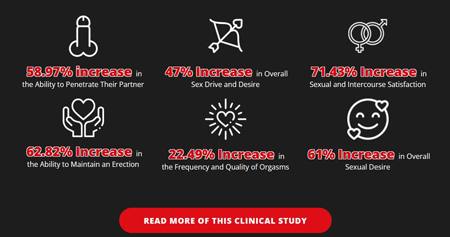Erectile Dysfunction is commonly know as ED, impotent, impotence, it has various descriptions. ED is a condition that develops in men starting around the age of 27 years of age. With the decline of the hormone called testosterone occurring gradually as one ages the symptoms become more and more noticeable. Symptoms like physical, psychological. Lifestyle plays a big role as well. Today we will dive into that causes and factors ultimately having the potential of creating relationship issues.
Erectile Dysfunction (ED):
It can have various underlying causes and associated issues, that could include:
Physical causes:
Cardiovascular Diseases:
Low testosterone can effect the heart and increase the heart disease, it can also affect you with high blood pressure, atherosclerosis (clogged blood vessels), & increase high cholesterol restricting blood flow to the penis, leading to ED.
Diabetes:
Low testosterone can be the underlying issue with high blood sugar levels that can damage blood vessels and nerves, also affecting the ability to achieve an erection when the opportunity occurs.
Neurological Disorders:
Clinical research findings confirm conditions such as multiple sclerosis, Parkinson’s disease, and spinal cord injuries can interfere with nerve signals involved in achieving an erection.
Hormonal Imbalances:
The hormone testosterone is at the peak of the hormone pyramid therefore low testosterone levels can create a cascade of imbalances in other hormones that can also contribute to ED.
Medications:
It is well know that medications have sever side effects, such as antidepressants, antihypertensives, and chemotherapy drugs, can directly impact ED as a side effect.
Psychological Erectile Dysfunction Causes:
Stress and Anxiety:
Keep in mind that mental health issues will change your para-dime, work-related stress is the biggest factor, performance anxiety, and relationship problems can all impact sexual performance too.
Depression:
Feeling or being depressed can lower libido and affect sexual function.
Past Trauma:
Previous negative sexual experiences, divorce or trauma can contribute to ED.
Lifestyle factors:
Smoking:
Tobacco use can damage blood vessels and restrict blood flow.
Alcohol and Drug Use:
Excessive consumption of alcohol or certain drugs can impair sexual function.
Obesity:
Being overweight can lead to hormonal imbalances and cardiovascular problems that contribute to ED.
Lack of Exercise:
Sedentary lifestyle and lack of physical activity can affect overall cardiovascular health, including erectile function.
Relationship issues:
Communication Problems:
Lack of communication which most of use are know for or unresolved conflicts in a relationship can affect intimacy and sexual performance.
Intimacy Issues:
Put aside those expectations that holywood has implanted in our heads, they will create a lack of emotional connection and intimacy with a partner.
Erectile Dysfunction can be managed with various treatment options, now depending on the underlying cause of your condition. Here are few detailed solutions for ED, including information on the Testosil™ a proven and powerful supplement composed of natural proven herbs and vitamins:
Medications:
Phosphodiesterase type 5 (PDE5) Inhibitors:
Drugs like Viagra (Sildenafil), Cialis (Tadalafil), and Levitra (Vardenafil) are commonly prescribed to help increase blood flow to the penis and improve erectile function. They are not drugs that I would personally take and I advice to research them thurally. Because the the sever side effects. These medications should be taken as prescribed by a healthcare provider and don’t abuse the use.
Testosterone Replacement Therapy (TRT):
For men with low testosterone levels, TRT may be recommended to help improve libido and erectile function. This therapy involves the use of testosterone supplements, gels, injections, or patches under medical supervision. Keep in mind that once your start this type of therapy dependency is a danger.
Lifestyle Changes:
Exercise:
One of the most effective activities that you can start is getting into regular physical activity. Exercise can improve cardiovascular health, blood circulation, and overall well being, which will positively impact erectile function.
Healthy Diet:
Eating a balanced diet rich in fruits, vegetables, whole grains, lean proteins (stick to vegi proteins), and healthy fats can help support overall health and significantly improve erectile dysfunction symptoms.
Weight Management:
Maintaining a healthy weight will reduce the risk of obesity related issues on many levels and improve ED.
Limiting Alcohol and Tobacco Use:
Cutting back or all together the use of alcohol consumption and quitting smoking can improve blood flow and overall health, reducing the risk of ED.
Psychological Counseling For Erectile Dysfunction:
Therapy:
Cognitive-behavioral therapy (CBT) or counseling can help address underlying psychological issues contributing to ED, such as anxiety, depression, or relationship problems.
Supplements:
Testosil™ Supplement:
Testosil™ is a natural supplement marketed for improving testosterone levels and sexual performance. It contains ingredients proven to increase the production of testosterone which have been tested and proven to support hormonal balance and sexual function. However, it’s essential to consult with a healthcare provider before using any supplement, including Testosil™, to ensure safety and effectiveness.

Increase Semen:
In many cases, the increase of semen in men orgasms along with the benefits of the proper function of the prostate gland can help with the excitement of more sex with your partner. Stronger orgasms that you lost from your youthful days. For young men it can be an explosion of pleasure.
Lastly, Vacuum Devices and Penile Implants:
**In cases where other treatments are ineffective, vacuum erection devices or penile implants may be considered to help achieve and maintain an erection for sexual activity. These devices are typically used under medical supervision and guidance, however men report that its worse then wearing a condom, the penis tip does not increase in size. Decreased sensitivity and semen ejaculation decreases.
It’s crucial to consult a healthcare provider before starting any treatment for Erectile Dysfunction, including supplements like Testosil™, to ensure they are safe, appropriate for your condition, and do not interact with any existing medications or health conditions. Your healthcare provider can provide personalized recommendations based on your individual needs and medical history.
Disclaimer: This post contains affiliate links. If you make a purchase through these links, I may earn a commission at no extra cost to you. I only recommend products or services that I personally use and believe will add value to my audience. Thank you for supporting my blog!



